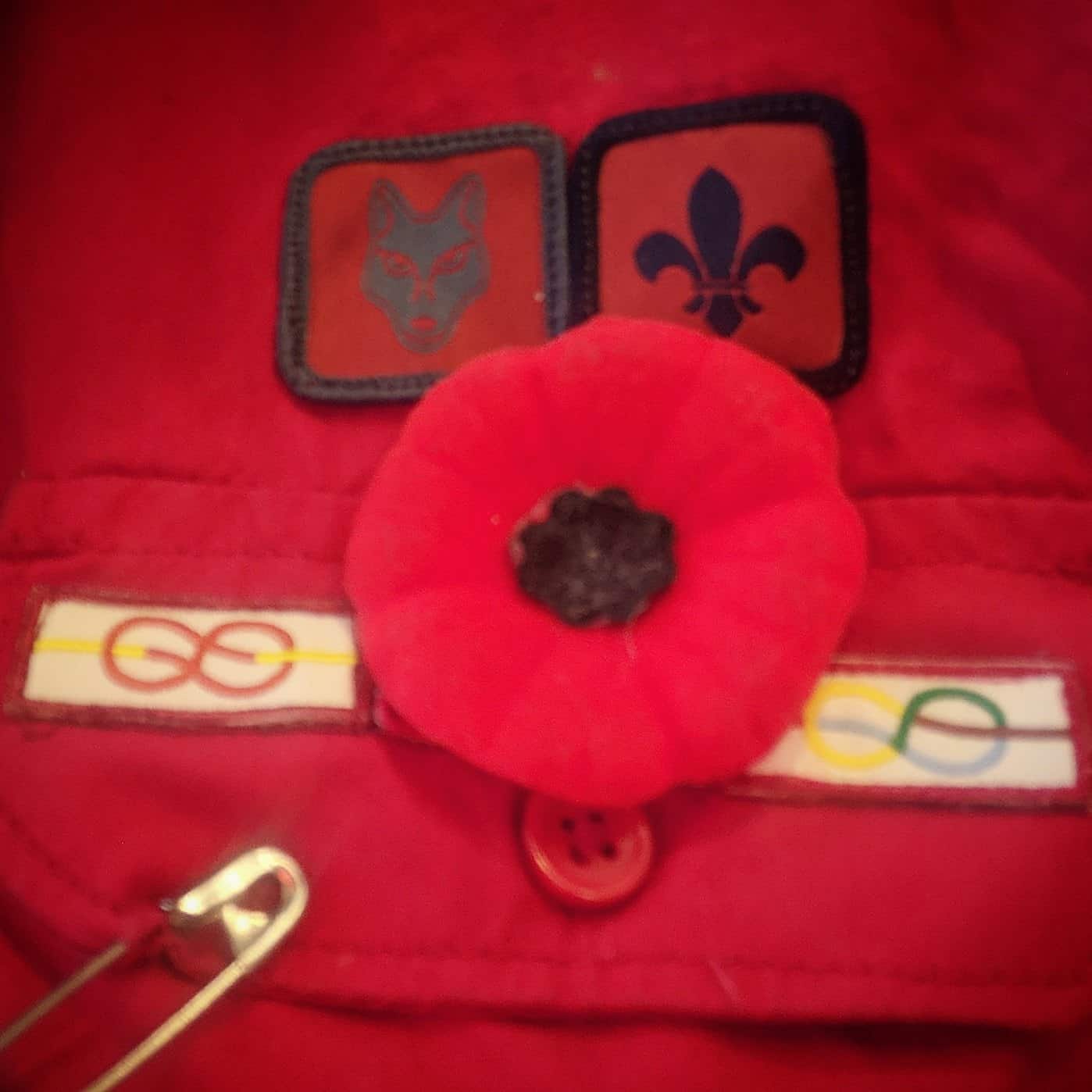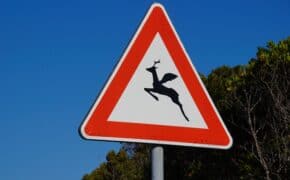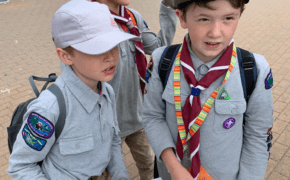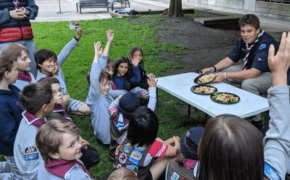The Power of Eleven
On the 11th hour, of the 11th day, of the 11th month, a war that shaped and rocked our society came to an end. Every year we gather, listen to our history, reflect on those who died, and remember. As a Scouter, I’m passionate about taking time to remember – not just WW1, but all wars.
I know that because of the Boer War, Scouts was founded. During the Boer War, then military officer Baden-Powell was stationed in a small South African township of Mafeking. There was a group of youth that supported the troops by carrying messages, which freed the men for military duties and kept the boys occupied during the long siege. Baden-Powell was inspired during the siege by the initiative shown by boys under pressure and realized that realized these youth had huge potential that was often left untapped.
Upon Baden-Powell’s return to the United Kingdom, he was regarded as a hero for successfully defending Mafeking and his book “Aids to Scouting” was gaining traction, which was unexpectedly used by teachers and youth organizations as their first Scouting handbook. As of 1907, Scouting was officially founded at Brownsea Island during the first ever camp with 20 youth.
I have a few program ideas for learning more about the history of Scouting here. I find it’s important to review and think about this – I know the value Scouting has added to my life and the giant impact it’s had as well. After a review from attending a local Remembrance Day service, my Cubs said that it wasn’t a positive experience. They couldn’t hear or see anything – it made it hard to stay focused and ‘absorb’ the event. They agreed it was important, but they wanted a different solution.
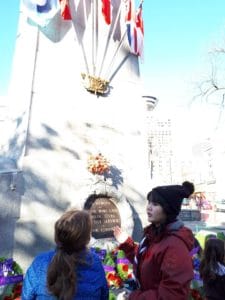 In 2016, I shared what we do for our program – you can read it here. Last year feedback came back that the Cubs understood the connection to Scouting and wars, but that was it. I spent the better part of the past year letting that churn in the back of my mind. How could I help the Cubs get a better understanding?
In 2016, I shared what we do for our program – you can read it here. Last year feedback came back that the Cubs understood the connection to Scouting and wars, but that was it. I spent the better part of the past year letting that churn in the back of my mind. How could I help the Cubs get a better understanding?
In school, they learn who fought, how many people died, why they fought… but it was their great great grandparents. It’s almost akin to learning about any other point in history – disconnected and not relevant.
The word “relevant” stuck with me. I can’t recall exactly what inspired me, but I went on a journey to explore what we have from a positive perspective. Here’s a list of things I found that is a by-product from war:
- microwaves
- antibotics
- zippers
- duct tape
- ballpoint pens
- instant noodles
- freeze dry foods (frozen french fries from McDonald’s totally counts)
- lasers (laser eye correction, CNC machines)
- house hold cleaners (bleach)
- fertilizers
- photocopying
- radar
- Disney (morale booster)
- computers
- smartphones
- NASA
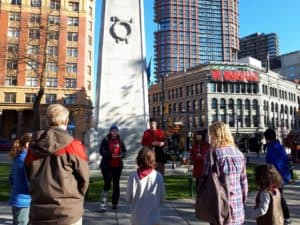 Should I continue? All of today’s modern technology is from military advancements, most of which are from scientists trying to find a solution to a battle.
Should I continue? All of today’s modern technology is from military advancements, most of which are from scientists trying to find a solution to a battle.
I watched several expressions today that told me that I hit the mark – from youth and parents. From warming up leftover meals, to accessing the internet, it all came at a high cost – millions and millions of lives.
Tomorrow is Remembrance Day – I encourage all of you to attend your local ceremony and think about all the different things that pass by you. Ask your self, would I have this luxury/item/choice if someone didn’t die for it?
Sources:
https://en.wikipedia.org/wiki/Scouting
https://scouts.org.uk/about-us/heritage/
http://www.krishna.com/modern-agriculture-product-military-history
https://www.businessinsider.com/everyday-products-launched-by-major-world-wars-2016-4
https://blog.findmypast.co.uk/10-everyday-inventions-you-owe-to-ww2-1434543995.html
https://www.bbc.com/news/magazine-26935867
http://americanhistory.si.edu/blog/ww2-disney
Video: Scouts in the First World War:
https://www.youtube.com/watch?v=CyiWn9IMMBE
previously, this article said: “On the 11th minute, of the 11th hour, of the 11th day, of the 11th month…”. This was pointed out by a reader and corrected.

